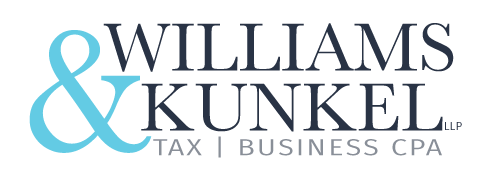Each year brings a new wave of tax laws. As such, the best tip is to always follow best practices so you’re prepared. (Flower Mound Accounting: Need-to-Know Tax Saving Tips)
You often can’t predict tax law changes and they can significantly impact your deductions and return. A new year could bring positive changes due to a particularly business-friendly policy environment, or it could mean inflated costs and pressure to change how you manage your books.
It’s important to speak with an accounting professional to make sure you understand specific tax issues and changes that are relevant to your business. However, following these eight tips can set you up for success this year.
1. Take advantage of accountable plans.
Accountable plans, which are covered under the U.S. Internal Revenue Service’s Topic No. 514 for Employee Business Expenses, allow employees to deduct certain business-related expenses. Logging these expenses so your employees can deduct them come tax time, serves as a nice perk for your workers. It may also lower your total tax costs.
2. Stay on top of adjusted gross income.
One of the most important tips is to pay attention to your adjusted gross income. Your adjusted gross income can directly impact the deductions and credits your business is eligible for. While the particulars of how to calculate this figure vary depending on specific tax laws, being aware of it is vital in planning for tax season. Check with your accountant or third-party tax partner for specific guidance.
3. Track receipts.
Maximizing your deductions requires awareness of how you spent your money throughout the year (which is also helpful for understanding cash flow). Properly organizing and tracking receipts makes it easier to not only log deductions accurately (and submit an accurate return), but in the event your business is audited, providing those receipts and proof of your expenses validates that costs were reported properly.
4. Avoid penalties from late payments.
This may be a simple concept, but it’s still a key issue and one of the most important business tax-savings tips. Late payments can be avoided in a variety of ways. Getting your documentation together early in the year can prevent last-minute filing and unforeseen expenses. Short-term working capital and business tax debt loans can help you cover tax payments and avoid late fees.
5. Consider restructuring.
When formally launching a business, you must decide what form of business entity to establish. And the type of entity you choose has its own taxation policies and deductions (not to mention which income tax form you use to file your taxes. It’s a good idea to revisit your business structure every few years to see if reclassifying it makes sense based on your goals and financial bottom line.
6. Use tax preparation and filing software.
Most tax preparation and filing software automatically accounts for tax laws and rules. This can simplify filing for you, reducing the likelihood of errors and making it easier for you take full advantage of the opportunities at your disposal. What’s more, for some business owners, it can be one of the simplest and most cost-efficient ways of filing a return to the IRS.
7. Use Section 179 opportunities.
The Section 179 deduction allows businesses to deduct the full purchase price of qualifying assets financed during the tax year. The use of Section 179 is great for those businesses in need of new equipment. The deductions from your gross income help maximize the value of business equipment purchases and similar investments by lowering your overall tax cost basis. Like any tax law, there are rules and limitations to be aware of. You can find more information from the IRS.
8. Don’t ignore benefit plans for employees.
You can take a tax deduction on your business tax return for the cost of providing benefits to employees. You can learn more about the types of benefits you can deduct and the restriction or limitations on those benefits from the IRS. It’s vital to understand how different benefits impact your business come tax time. (Flower Mound Accounting: Need-to-Know Tax Saving Tips)
Call Williams & Kunkel CPA today in Flower Mound at 972-446-1040 to have a chat and find out how you can save money on your taxes as a real estate professional.
In addition, you can connect with us to receive updates throughout the business week by following us on Twitter or LinkedIn or liking us on Facebook.
Source: Business

